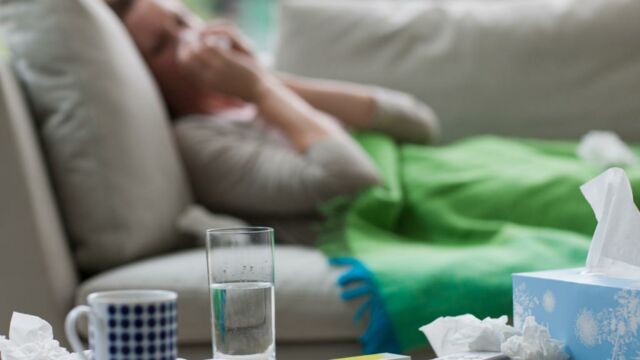I have been living in denial about the likelihood that influenza season is upon us, especially in light of recent reports concerning the Covid-19 rise in cases and monkeypox infections. Flu activity usually picks up in October according to CDC, but I could already hear the sneezing and sniffling on the underground two weeks ago – including myself.
Discover our latest podcast
Except for simply dreading being sick, it is worrisome that this year the flu season might be even stronger given that Covid-19 restrictions are practically nonexistent anymore, and more and more people are travelling given the two years of isolation. Another contributing factor is that our immune systems are weaker now, taking into account the low exposure to the virus we’ve had for the past two years.
How to prevent catching the flu?
The first logical answer would be to get a flu vaccine. According to a study published by theNational Library of Medicine, the flu vaccine is 51% effective in reducing hospitalization of people between 18 and 64 years old. A more recent study found that the flu shot was 41% effective in reducing flu-related hospitalization of children.
Get a COVID booster and flu shot at the same time
According to CDC, it is completely safe to take both the Covid and flu vaccines at the same time:
Experience with other vaccines has shown that the way our bodies develop protection, known as an immune response, and possible side effects after getting vaccinated are generally the same when given alone or with other vaccines.
Double vaccines, double protection, and double sore arms.

Don’t rush
However, if you are not at high risk of complications, or your area has not yet been hit by flu season, it would make more sense to wait. Why is that, you may ask, well, flu season is here to stay all winter long. A recent study suggests that the chances of catching the flu increase by 16% every 28 days after vaccination.
Wear a mask and wash your hands regularly
It would make sense to start wearing masks and washing your hands regularly. Many viruses are spread through airdrops and by touching contaminated surfaces such as doorknobs, handles, staircases, and other public and commonly touched surfaces.

What if you got the flu?
Oh well, if you can’t escape it, you should at least prepare for it when it hits. First of all, it is recommended to pile up on rapid Covid-19 tests, to make sure what kind of treatment you should seek.
No matter what kind of virus you have though, it is crucial to stay home in order to limit the spread of the flu. Contact your doctor in order to take the right steps in time. Make sure to rest and stay hydrated all the time.
Disclaimer: The contents of this article: text, graphics, images, and other materials contained, are strictly for informational purposes only. The content is not intended to be used as a substitute for professional medical diagnosis, advice, or treatment. Please always seek the advice of a qualified health provider with all the questions that you have related to, or about, a medical condition.
Sources used:
CDC: 'Flu Season'
CDC: 'Frequently Asked Questions about COVID-19 Vaccination'
National Library of Medicine: 'Effectiveness of influenza vaccines in preventing severe influenza illness among adults: A systematic review and meta-analysis of test-negative design case-control studies'
National Library of Medicine: 'Vaccine Effectiveness Against Pediatric Influenza Hospitalizations and Emergency Visits'
National Library of Medicine: 'Intraseason Waning of Influenza Vaccine Effectiveness'
Read more:
⋙ This year's flu season could be the worst. Should you be worried?
⋙ Tomato flu: There is a new virus spreading across India, here's what you need to know















